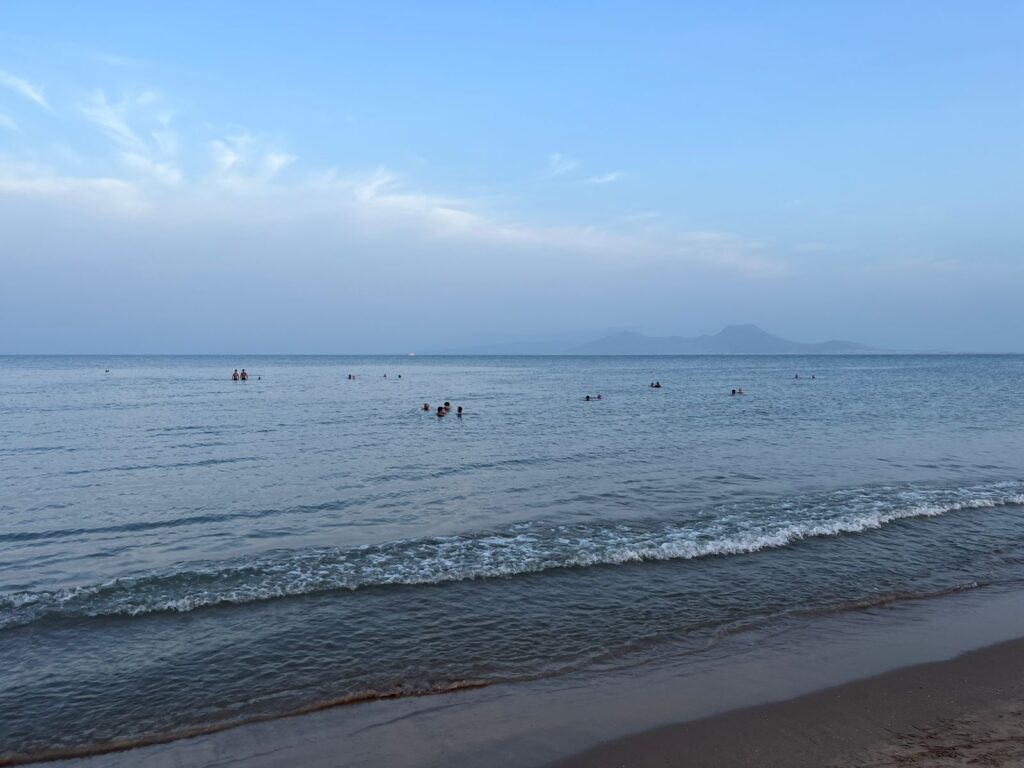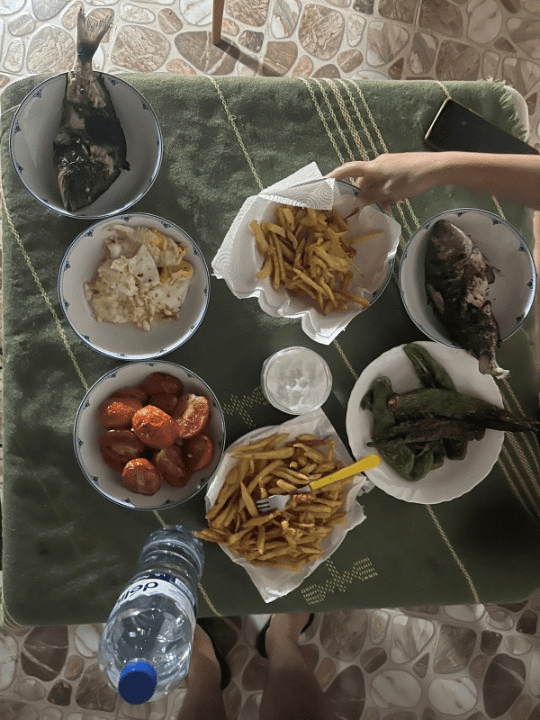It’s the last weekend of August, and last night there was a brief thunderstorm, which means that summer is rapidly coming to an end. Summers in Tunis are periods with no rain and scorching heat–most people don’t go out during the day wherever it can be avoided. For the séance unique, the hottest days of summer and August, business hours end at 1:00 or 2:00 pm, and everyone instead waits until sunset to begin going out again.

I spent yesterday evening at the beach with my fiancée. The crowds were much less than they were a few months ago, and I think everyone else realizes that summer is coming to an end as well. It’s an odd thing, given that swimming in the sea is as pleasant in September or October as it is in August. It’s only in late autumn that it becomes too cold. Even so, most people in Tunisia don’t swim outside of summer months.
When we came home, we grilled fish and prepared moqli: fried tomatoes, peppers, eggs, and potatoes (that is, French fries). Fish and moqli are also heavily associated with summers, and I frequently find myself licking my chops in anticipation of moqli.

In spite of these little pleasures, I find summer to be an intensely challenging time. Temperatures may well exceed 40°C (104°F) over the course of an entire week. There is little choice but to stay inside and–even in evenings–the humidity remains intense. At the same time, I’m not particular of crowds, and the hottest spots in the capital become overwhelming with people visiting: the seaside towns of La Marsa, Sidi Bou Said, and La Goulette pull people from all over the capital region and beyond.
I’ve found that the best time to go out is really at 5:00 am: the sea is comfortable enough to swim in, the air feels fresh, and it’s even possible to go for brief jogs.
On the other hand, summer offers incredible activities to those looking to explore Tunisia’s music scene. After all, summer is the season of the festival, and large music festivals take place in cities all around the country. I am most fond of the Festival International de Carthage (the largest, which takes place in Carthage’s Roman Theater), the *Festival International de Dougga* (which takes place in another, stunning Roman theater in northwestern Tunisia), and the Festival international de musique symphonique d’El Jem (focuses on classical music and is held in the largest Roman colosseum in North Africa–one of the largest in the world).
The end of summer is bittersweet, but it won’t prevent me from continuing to swim in much cooler temperatures.
